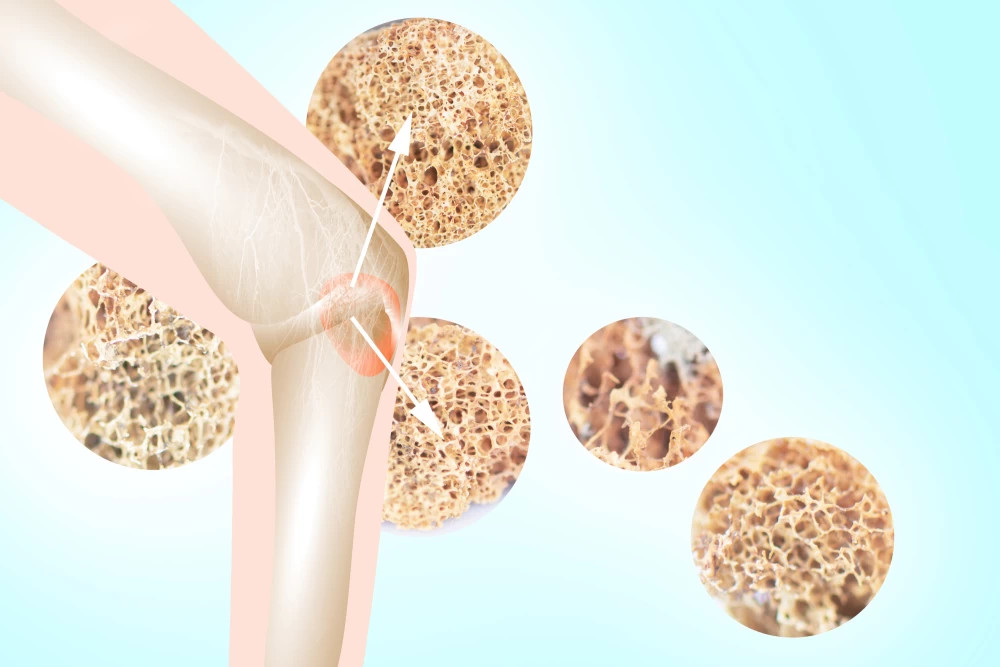
- 23rd March 2023
Table of Contents
What is Fatty Liver?
Fatty liver, also known as hepatic steatosis, is a condition where the liver accumulates excess fat. This occurs when the liver cannot break down fats efficiently, leading to a buildup of fat in the liver. Fatty liver is often associated with obesity and is commonly seen in people who consume excessive amounts of alcohol. However, non-alcoholic fatty liver disease (NAFLD) is becoming increasingly common due to unhealthy diets and sedentary lifestyles. Vitamin D plays an essential role in maintaining good health and preventing chronic diseases such as NAFLD. Studies have shown that vitamin D deficiency is prevalent among individuals with NAFLD. Vitamin D helps regulate insulin resistance, which can lead to fatty deposits in the liver if left unchecked. Additionally, low levels of vitamin D have been linked to inflammation and oxidative stress – two factors that contribute significantly to NAFLD.A diet rich in vitamin D can help prevent or even reverse NAFLD by reducing inflammation and increasing insulin sensitivity. Foods like fatty fish (e.g., salmon), egg yolks, cheese, mushrooms are great sources of vitamin D that should be included in a balanced diet for those with fatty livers. As always, it's best to consult your doctor or a registered dietitian before making any significant changes to your diet or supplement routine.
Role of Vitamin D
Vitamin D plays a crucial role in maintaining a healthy liver function by regulating the levels of enzymes involved in liver metabolism. It has been found that individuals with fatty liver disease have lower levels of vitamin D, indicating that improving vitamin D status may help improve liver health. In addition to regulating enzymes, vitamin D also helps reduce inflammation in the liver, which is a common feature of fatty liver disease. Apart from its role in liver health, Vitamin D is important for several other functions in the body. It helps maintain bone density and muscle strength, regulates immune system function and reduces the risk of chronic diseases such as diabetes and heart disease. However, it can be difficult to obtain enough vitamin D through diet alone as few foods naturally contain high amounts of this nutrient. As such, supplementation with vitamin D may be necessary for those with low levels or who are at risk for deficiency due to limited sun exposure or certain medical conditions. In conclusion, adequate intake of Vitamin D is essential for maintaining overall health and especially important for those suffering from fatty liver disease. A balanced diet rich in fatty fish such as salmon and tuna along with fortified dairy products can help increase dietary intake; however supplementing under medical supervision may also be necessary to achieve optimal levels of this vital nutrient.
Benefits of Vitamin D for Fatty Liver
Vitamin D plays a crucial role in maintaining liver health, especially in the case of fatty liver disease. Studies have shown that vitamin D deficiency is common among people with this condition, and it can worsen the inflammation and scarring of the liver. To prevent further damage to the liver, it is important to maintain optimal levels of vitamin D through diet or supplements. One of the benefits of vitamin D for fatty liver disease is its ability to reduce insulin resistance. This hormone imbalance is often linked to metabolic conditions such as obesity and type 2 diabetes which are risk factors for developing nonalcoholic fatty liver disease (NAFLD). Vitamin D helps regulate insulin sensitivity and improve glucose metabolism which can help prevent or reverse NAFLD. Another benefit of vitamin D for fatty liver patients is its anti-inflammatory properties. Fatty liver disease causes chronic inflammation in the body, leading to tissue damage and scarring. Vitamin D supplementation has been shown to decrease inflammatory markers in the blood which can help reduce liver inflammation and promote healing. In conclusion, incorporating adequate amounts of vitamin D into one's diet or taking supplements may aid in preventing or managing fatty liver disease.
Foods Rich in Vitamin D

Foods rich in vitamin D are essential for a healthy fatty liver diet. Vitamin D is an important nutrient that helps the body absorb calcium, which is essential for strong bones and teeth. Additionally, studies have shown that vitamin D may play a role in reducing the risk of several chronic diseases, including fatty liver disease. Fatty fish are some of the best sources of vitamin D. Salmon, mackerel, and tuna are all excellent choices for those looking to increase their vitamin D intake. Other good sources include fortified foods such as milk, orange juice, and cereal. Mushrooms also contain vitamin D when exposed to sunlight or UV light. It's important to note that while diet is an important source of vitamin D, it can be difficult to get enough through food alone. It's recommended to spend about 10-15 minutes in the sun each day without sunscreen (during non-peak hours) to help your body produce its own natural supply of this vital nutrient. If you're unsure whether you're getting enough vitamin D from your diet and sunlight exposure alone, talk with your doctor about taking a supplement.
Recommended Daily Intake
Vitamin D is an essential nutrient that plays a crucial role in maintaining healthy bones, teeth, and muscles. However, recent studies have shown that it may also be beneficial for those with fatty liver disease. Fatty liver disease occurs when excess fat accumulates in the liver cells; it can lead to inflammation and scarring of the liver, causing serious health problems. Research has found that vitamin D deficiency is common in people with fatty liver disease, and supplementing with this nutrient can improve liver function. The recommended daily intake of vitamin D for adults is 600-800 IU (International Units) per day; however, people with fatty liver disease may require higher doses to see improvement. It is important to note that while vitamin D supplements may help improve liver function, they are not a substitute for a healthy diet and exercise. A balanced diet rich in fruits, vegetables, whole grains, lean proteins, and healthy fats can help prevent or manage fatty liver disease. Incorporating physical activity into your daily routine can also help maintain a healthy weight and reduce the risk of developing fatty liver disease.
Possible Side Effects of High Intake
Although vitamin D is an essential nutrient, high intake can lead to adverse effects. One possible side effect of excessive vitamin D intake is hypercalcemia, which is characterized by high levels of calcium in the bloodstream. When this happens, it can lead to kidney stones and other related health problems. Another possible side effect of high vitamin D intake is bone loss or osteoporosis. This may sound counterintuitive because vitamin D is known for its role in promoting healthy bones, but too much of it can have the opposite effect. Excessive amounts of vitamin D can cause your body to absorb too much calcium from your diet, leading to weaker bones over time. In conclusion, while it's important to get enough vitamin D in your diet (especially if you have a fatty liver), taking too much can be harmful. It's always best to consult with a healthcare professional before making any significant changes in your diet or supplement regimen.
Conclusion
In conclusion, incorporating vitamin D into a fatty liver diet can have significant benefits for those struggling with this condition. Research has shown that vitamin D plays a crucial role in regulating liver function and improving insulin resistance, both of which are key factors in managing fatty liver disease. Additionally, adequate levels of vitamin D have been linked to reduced inflammation and improved overall health. It's important to note that while increasing vitamin D intake through diet or supplements can be helpful, it should not be relied upon as the sole solution for fatty liver disease. A well-rounded approach including dietary changes, exercise, and possibly medication under the guidance of a healthcare professional is often necessary for effective management. Overall, ensuring adequate levels of vitamin D in conjunction with other lifestyle modifications can lead to improved outcomes for individuals with fatty liver disease.














